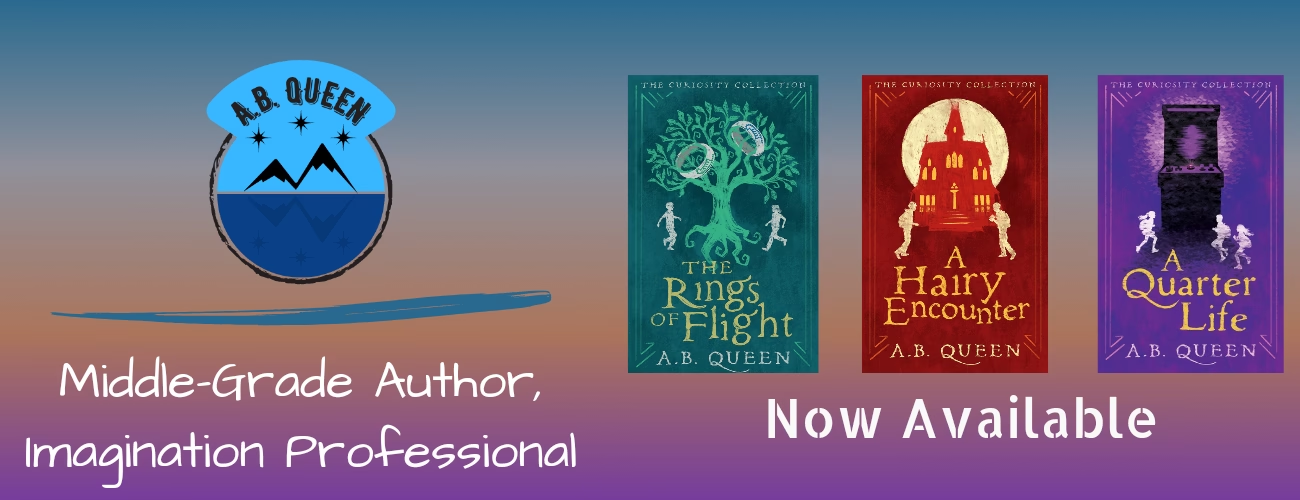
Setting Goals as a Writer: Your Roadmap to Success
“You are never too old to set another goal or to dream a new dream.”
C.S. Lewis
Setting goals and reaching them isn’t just for the overachiever, they can truly benefit everyone. Especially writers. In fact, writers are just like so many other careers and professions. They rely on deadlines and a finished product. Which means that goals are the perfect way to help your career.
Okay, I know some of you may not be the goal-setting type, but if you are reading this article, then there is even the slightest chance that you are interested in using goals to advance your career, be more productive, and even be more creative. Yup, you read that right. Setting goals can help you in all of those areas. Of course, it will involve some trial and error, practice, and habit-building, but once you find what works for you, your sense of accomplishment will soar through the roof.
Understanding the Purpose of Writing Goals
Before you even start writing a goal, you need to have a vision or an end result in mind. Of course, this can be as abstract or as precise as you want, but a goal is a desired result that you see for yourself in the future. Keep in mind that we will be looking at these goals from a writing perspective, but of course they can be used in many aspects of your life.
“If we want to feel an undying passion for our work, if we want to feel we are contributing to something bigger than ourselves, we all need to know our WHY.”
― Simon Sinek, Find Your Why: A Practical Guide for Discovering Purpose for You and Your Team
Clarifying Your Why
Why do you write? This is an excellent question that we writers should ask ourselves on a regular basis. It can be a tough question, but it’s an honest question that will help remind us why we do what we do and why we set goals for writing.
Maybe writing is a passion of yours that you have had since you were five years old, or even something you discovered while in college. Passion is an incredible answer to your “why.” Or maybe it’s a career that you have landed on. It may not be your passion, but you enjoy it and find it meaningful enough to make a career out of it. It could also potentially be self-expression. A way to release those emotions in a medium that has vast potential.
Whatever your “why” is, it’s important to know and understand the answer as you set goals. It helps set realistic expectations while keeping the drive alive.
Aligning Goals with Long-Term Vision
Okay, so you have the answer to your why. Now, we can talk about how short-term goals fit into your overall writing journey.
When we think of our why and writing journey, it can, and usually is, a decently large task to achieve. Whether it is becoming a best-selling author, writing a memoir for your family, or even advancing your career, whatever it is, it isn’t something that happens overnight but realistically takes a long time to accomplish with loads of effort.
For whatever the why is, your journey should be broken down into smaller chunks to be manageable and attainable, and keep the drive going all the way until you reach the end of your journey.
Types of Writing Goals
Before we get into how to set some goals, we should talk about the various types of writing goals. There are many types of goals one could have has a writer. You may need to finish a draft by a specific date, be ready with a better portfolio of work for that next promotion, or maybe improve your prose as you have dreams of writing in a different genre than you currently know how. In the list below, I may not go over all of them, but as you read through them, see if anything aligns with your current goals.
Project-Based Goals
Project based goals can usually be geared around specific works as a writer. Finishing a novel, a short story, writing your first screenplay, or even a list of ten articles. It really doesn’t matter, as long as you can classify it as a project.
Skill-Based Goals
I am always on the hunt for new skills, which means I consistently have new skill-based goals popping up and being created. Skill-based goals are exactly as they sound. A skill that you, as a writer, are looking to learn or inhance.
This could be items such as writing in 1st person rather than 3rd person like you are used to. Or maybe you want to write a sci-fi novel when you have only ever written non-fiction self-help books. Whatever the skill is, it’s healthy and actually pretty damn important to have skill-based goals as it keeps you learning and expanding your knowledge.
“The only skill that will be important in the 21st century is the skill of learning new skills. Everything else will become obsolete over time.”
— Peter Drucker, American Austrian Consultant
Productivity Goals
There is an entire sub-genre multi-million dollar market of books all dedicated to being more productive. It is something millions of people wish for at some point in their life, to be more productive. Productivity is also tricky, as only you can define what productive means to you. For instance, my idea of productivity is drastically different from my families.
Having goals around productivity is often a common goal for any writer. That’s because setting goals such as word count per day, chapters per week, or reading a designated amount of books per month is all considered productivity goals.
Career-Oriented Goals
Career-oriented goals is a fun way to plan and set goals. I mean, we have been doing it since we are kids. Day dreaming about our dream career and then making smaller goals to inch ourselves closer to that dream. How cool is that?!
Career-related goals can be anything that you believe will help push your career forward. From building a following and or a platform, networking at conventions, self-publishing, finding an agent, or even contacting your local bookstore to stock your books. These are all goals that can help push your career forward and are some of my favorite to set.

Setting SMART Writing Goals
Trusty ol’ SMART Goals. Probably one of my favorite tactics. Or, at least in my top three. SMART Goals are on this list for a reason, they work. I mean, of course you still have to put some effort, time, and accountability into them, but the SMART Goal process is an efficient and practical way to setup your writing goals.
SMART Goals can be incredibly successful because they have parameters that keep the goal from getting out of hand and too ambitious. Of course, one should know how the parameters work.
Please note, while the example I am using is truly just that, an example, the practice is the same and we can always break this SMART goal process down further. There is no limit on how many goals to set. In fact, once you create one goal, try the whole process over again to narrow it down even further. Repeat this until you have a obtainable goal to work on.
Now, let’s get into it.
Let’s start with an end goal that needs to have some parameters before we narrow in each category.
“I want to write a book.”
Specific
The first parameter is to be specific. Setting goals is fun, but sometimes they are vague and need to be brought in just a little bit more. For better success rate, don’t be afraid to be very specific with your goals.
Example:
Instead of just “I want to write a book” try “I want to write a middle-grade fantasy book for ages 8-12.”
It is much more specific and already starts to guide you in the right direction.
Measurable
Measurable is a way to put a logical restriction on the goal. This isn’t to say you have to adjust your long term goals, it just means you need to take smaller bites to get there. If you set a goal that isn’t measurable, you are going to become discouraged and have a higher chance of not reaching your desired end result.
Example:
- I want my middle-grade fantasy book to be about 20,000-30,000 words.
Adding in a word count helps us know begin to understand the effort that will be going in to writing this book.
Achievable
Day dreams will remain day dreams unless you put effort into achieving them. Which means we need to properly set expectations on your dreams. Again, not to lower your dreams, but to know they are achievable with the proper planning and goal setting.
Example:
- When we take the idea that we want to writer a middle-grade fantasy book of about 20,000 – 30,000 words, we know this is achievable because we have shown interest in writing, have maybe experimented with writing, or are a fan of reading.
This becomes less achievable if you want to write the book within the next hour by only eating muffins.
The achievable portion of SMART goals doesn’t mean completely changing a goal, but doing a logic and reality check with your writing goal. This portion of SMART goals can become more of a concern when you put time restraints or a lack of skill into the mix.
Relevant
Making sure your goal is relevant is also a logic and reality check. It helps keep the goal within the boundaries and on track. If you start mixing together some of your larger goals and ambitions, the relevance of each goal can quickly become fuzzy and dicey, which leads to confusion and not achieving your goal.
Example: Writing a middle-grade fantasy book within 20,000 – 30,000 words is relevant to our original goal of wanting to write a book.
This would not be relevant if our initial goal was to fly a space shuttle or become a world renowned chef.
Time-Bound
Last, but certainly not least, we have our time-bound parameter of the SMART goals. Without the time-bound parameter, these goals would be harder for us to achieve if we don’t put that little bit of pressure on ourselves to achieve the goal. Though, with the time-bound parameter, I have always found it useful to keep in mind the other aspects of the SMART goal system. Make it specific, measurable, achievable, and relevant.
Example: To create a middle-grade fantasy novel of 20,000 – 30,000 words, we can’t do it within a couple of hours. However, giving ourself a year is most certainly achievable.
Looking at our calendars, our free time, the length of the novel, and the subject matter, we can set a reasonable time-bound parameter to our goal and see success in a reasonable amount of time.
Yearly Goal Retreat
This year, my sister and I got together to have our first yearly goal retreat. We each have different careers, but we are equally ambitious and driven by our dreams. So, we decided we should get together and have a goal-setting retreat each year. This brings out many cool and exciting things when we meet.
Long-Term Goal Setting
The first thing this retreat does is allow us to talk about our dreams and put them into long-term goals. We print out many different goal-setting templates and go crazy about what we want to achieve in the next year.
I can then take these long-term goals and break them down using the SMART goal method for each project.
Accountability
We will talk about this one a bit more down below, but having this yearly retreat allows me to have loose accountability. We check in with each other every so often about the goals we set to see how far we have come and if there is anything we can do to help.
Then, at the next retreat, we will review what we accomplished and talk about the struggles and achievements before we set out to set the goals for the next year.
Fun Times
While our main purpose of the goal-setting retreat is to set long-term goals, we also make sure we have some fun with it. It’s a two- to three-day retreat where we will visit new coffee shops, breweries, and any destination that is nearby associated with our goals. It allows us to bond, enjoy new sites, and get pumped about the new year and our dreams.
“It does not matter how slowly you go so long as you do not stop.”
– Confucius
Strategies for Achieving Your Writing Goals
Okay, now that we have talked about setting goals, we need to talk about a handful of ways to be consistent, reliable, and dedicated to your goals.
Breaking Down Large Goals
In the examples we used during the SMART goal section, we created a goal to of writing a middle-grade fantasy book of 20,000 – 30,000 words within a year. However, that is still a large process and goal to achieve. There are many parts to a book, and it takes consistent dedication to achieve this goal.
With that in mind, we need to make sure we set ourselves up for success and remove as much friction as possible while we work towards the end goal. To do this, we can easily break down the larger goal into smaller chunks. As I’ve mentioned before, smaller bites are key. Taking an entire book and running through the SMART goal process a few more times is an exceptional way to create those smaller chunks.
Maybe instead of the entire book, you have a SMART goal for the first arc, or maybe even the first few chapters, only the first chapter, or just the outline. Then you can reassess and reapply the process for each goal’s completion and adjust what you find comfortable. Maybe you need more time per chapter or more time to outline. Either way, small goals that give you a sense of accomplishment when reached will keep you dedicated all the way to the finish line.
Building a Writing Routine
I love reading about a good writing routine. I also love re-creating mine each year to better suit my current schedule and lifestyle. A writing routine is the cornerstone of a finished project. The beautiful thing about a writing routine is that it is just as unique as the individual, and no two are the same.
Take mine, for example. Earlier in the year, I was writing a few hours every morning and a few hours every afternoon. However, it has now changed where I write about two hours in the morning, two-three hours in the afternoon, and a couple hours after dinner before bed. I don’t expect this to stay this way for much longer, but I prioritize making sure I do have a routine that my family knows, which allows me to disappear for a few hours at a time to get my work done.
At the end of the day, it’s about building healthy and consistent habits to ensure I reach my goals and feel productive.
Staying Accountable
There is a reason everybody loves to hate group projects. While, for many, it may be a social anxiety situation, there is also the accountability of holding up your end of the deal. Accountability is also what keeps most of us getting our work done in our 9–5 jobs. We are held accountable by our teammates, bosses, classmates, and family. So, why shouldn’t we use a healthy version of this technique to achieve our writing goals?
Finding an accountability partner can be the lifesaver you didn’t know you needed. Try finding a friend or colleague who has the same ambition, drive, and need as you to hold each other accountable. This doesn’t need to be anything fancy or official, but someone you can message to give inspiring quotes throughout the day and check in to see how the work is going. Just make sure you have a happy and healthy relationship with your partner to make the most of it.
This, of course, can also be achieved by joining a writing group, a workshop, and/or class to get the same result.
Tracking Progress
If you’re anything like me, you may be a spreadsheet nerd. And being a spreadsheet nerd means you may like to create something to track your progress. However, if you are not a spreadsheet nerd, let me just tell you—you are missing out!
Even though I love creating new spreadsheets, I actually enjoy placing my word count and progress of my projects into spreadsheets at the end of each day. It’s almost like a game, as it helps me better understand my goal progress while feeling like I am leveling up.
There are also some apps out there that can help you with this if you are not one for building spreadsheets or even a simple piece of paper on your desk. I very much recommend tracking your progress to better understand your goals, what you are able to complete, and to be a reminder if you are on track or not.
“Anyone who has never made a mistake has never tried anything new.”
– Albert Einstein
Overcoming Challenges
There are endless challenges a writer needs to deal with on a day-to-day basis. To many people (non-writers), they may think the job is easy because it only involves putting words on a piece of paper. But most writers will disagree. There is an incredible amount of mental strength and agility that is used every single day to create our work. And, if we aren’t careful, it can ruin the entire process of writing and lead us to turn away from the craft.
Dealing with Writer’s Block
Writer’s block. Gross. An annoyance that is going to show up sooner or later in every writer’s life. While it is hard to get over, there are ways to defeat writer’s block, if not completely avoid it all together. Please keep in mind that writer’s block comes in all shapes and forms, at all times of the day and night, for any type of writer, for any duration of time.
Let’s talk about a few tips and tricks to get rid of it and even avoid it.
- Writing Groups
- This falls within the accountability bucket. Joining a writing group where you are held accountable is most certainly a productive way of keeping the writer’s block at bay.
- Writing Exercises
- Not unlike stretching before working out, writing exercises can help you avoid writer’s block all together. By doing a single exercise each day, you can prepare yourself and your mind for a fun, effective, and productive writing session.
- Reading
- It’s one of my favorite ways to get through a writer’s block. Reading opens the mind to so many possibilities that it’s hard not to be inspired by someone else’s work and their accomplishments.
Handling Setbacks
In every career and even in hundreds of other aspects of life, setbacks are going to happen. It’s how the world works. Though I am one to never look at a setback as a bad thing, in fact, I appreciate setbacks when they pop up. That’s because it gives me the chance to learn something unexpected and learn more about myself.
And that’s the key to not letting setbacks get to you. When you have a setback, you should…step back and assess the situation. The amount you can learn from a setback usually far exceeds the amount you can learn from never facing it.
Having a little friction in life is a good thing, it allows us to grow and keep moving forward as humans. It doesn’t change the end goal, it just changes how you approach it.
Adjusting Goals When Necessary
When we hit roadblocks, such as setbacks or writer’s block, we may need to adjust our goals. Not change them, just adjust them to better fit the new information we have received. This may be the time frame, the length of the book, or the skillset that we need.
Readjusting your writing goals is a crucial skill every writer must have. Being flexible and agile with your goals will set you up for success more than sticking to your original goal parameters and not budging.
Enjoy the little things, for one day you may look back and realise they were the big things.
Celebrating Milestones
I love milestones. They are a sign of progress and drive. It reminds me that I am moving forward in my goals and getting that much closer to my desired end result. Though, sometimes that desired end result can be so far away that I forget how far I have come. Which is why we need to love ourselves and celebrate more than just the end result.
Recognizing Small Wins
Make sure to enjoy the process as you move ever so closer to the end result. Enjoy the fact that you wrote an entire chapter of your first ever book. Celebrate it! Enjoy that you found an agent, or that you created a business. These are fantastic and brilliant milestones that an incredible amount of people may never see.
If you don’t celebrate the little things along the way, the end result can seem unreachable and impossible. I personally always celebrate when I finish the first draft of a new book. This reminds me that I am moving forward to publishing another book and sharing my work with others.
But I even celebrate the things in between. Like placing one of my books in a little free library, or finishing a new article. It isn’t much, but I take the moment to think about the effort it took and appreciate how fortunate I am to be able to do this in the first place.
Reflecting on Growth
To evolve as a human, we must remember where we came from and how far we have come. Do yourself a favor and think back to ten years ago and where you were at that point in your writing career, now take a look at today and recognize how far you have come. Even if you haven’t put a single word to paper, the fact that you are still interested in writing so many years later is something to be proud of.
To have a better structure when reflecting your growth. I recommend to take your goals and review them once a month or every quarter. See what you have accomplished and give yourself a pat on the back. Use what you have learned to adjust your goals and move forward. Repeat, learn, and adjust accordingly.
Conclusion
We have talked about a great amount today when it comes to goals as a writer. If you take away anything, take away how important it is to have goals. Remember that setting goals isn’t there to restrain you, but to move you forward and make your dreams come true. If you build a good and solid habit of goal keeping, you will be astonished at how far you can go.
Now, get to it, set those goals, and make those dreams a reality.
Until next time,
Please note that links in this site contains product affiliate links. At no extra cost to you, I may receive a commission if you make a purchase after clicking on one of these links.





